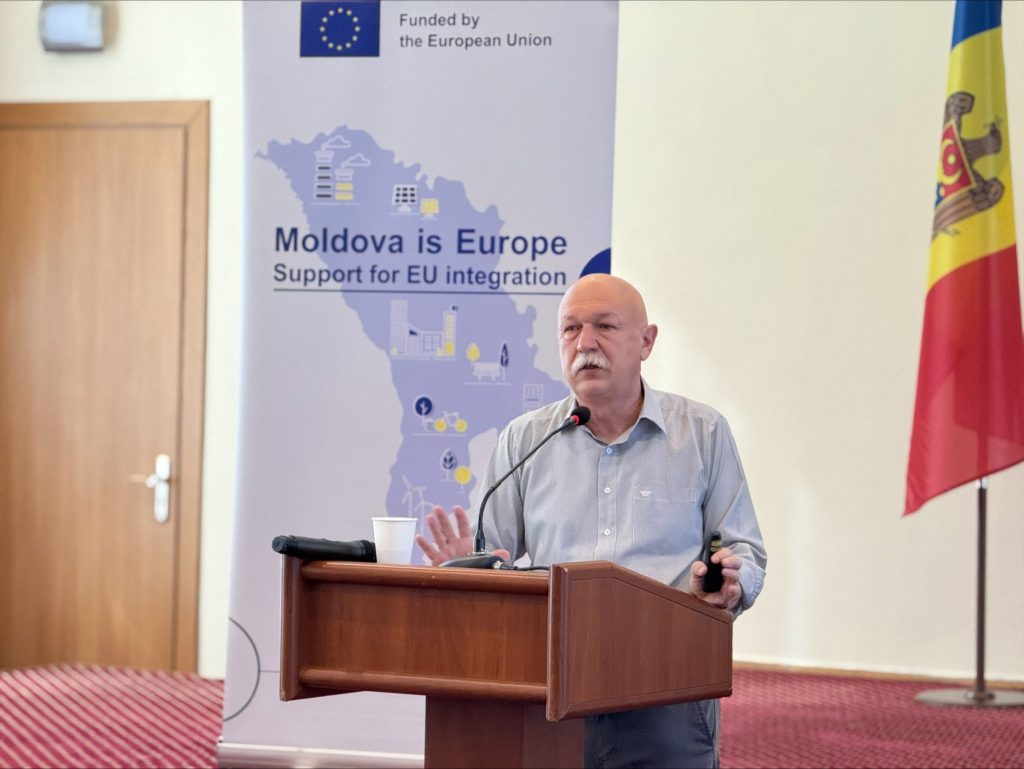Information Sessions for Interns Continue with Focus on Energy Sector and Governance Act

On 17 July, a new training session within the ongoing capacity-building programme for interns of the two Internship Programmes brought together over 120 participants, eager to deepen their understanding of Moldova’s energy sector and to learn more about the practical aspects of the governance act.
Alexandru Săndulescu, EU High Level Adviser on Energy, facilitated an engaging discussion entitled “The Energy Sector of the Republic of Moldova – Challenges and Opportunities,” providing valuable insights into the regional context, recent energy crises, efforts to ensure energy security and Moldova’s integration with the European energy market. In addition, Mr. Săndulescu delivered an inspiring talk on 10 Reasons to Work in the Public Sector, motivating young professionals to consider careers in public administration as a meaningful and impactful choice, for both their own professional growth and for the country’s European future.

Tatiana Rusu, Junior Expert in Energy held an interactive presentation on “Disinformation in the Energy Sector”, familiarizing the interns with real examples of how false or misleading information can shape public opinion and disrupt reforms, especially in critical areas like energy. Her session highlighted the importance of staying informed, thinking critically, and checking information sources.

The session concluded with Liliana Balan, Deputy Head of the Directorate for Relations with Parliament of the State Chancellery, who presented “How Governance Works in Practice: Government–Parliament Cooperation.” Interns gained first-hand insights into the legislative process and the interinstitutional coordination mechanisms behind effective policymaking.
Launched on 30 June, the joint Internship Programme of the European Union and the Government of the Republic of Moldova offers students and recent graduates from Moldova and abroad the chance to gain hands-on experience in central public authorities, working with civil servants and EU High Level Advisers. Alongside daily tasks, interns attend seminars and training sessions to lay the foundation for their theoretical knowledge and reinforce their practical skills. Upon completion of the two-month Internship Programme, graduates receive participation certificates and may qualify for civil service employment without competition or probation period, by completing an additional month of internship and applying within the same subdivision.
